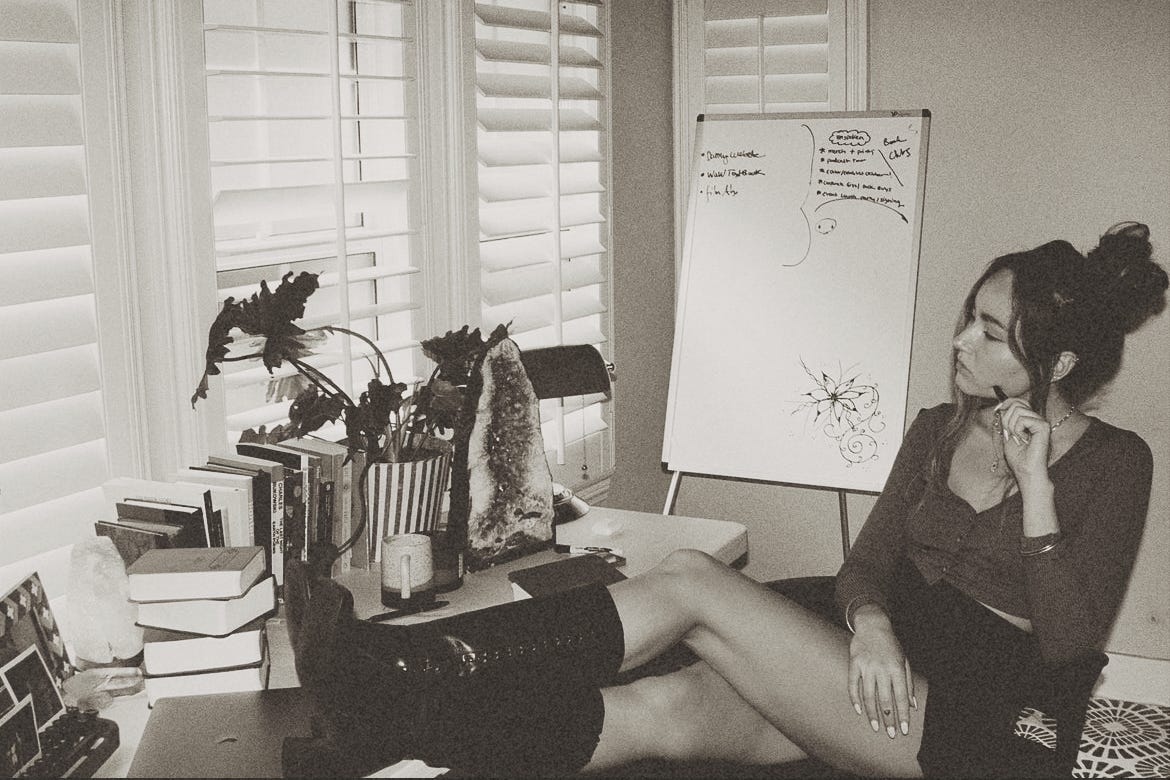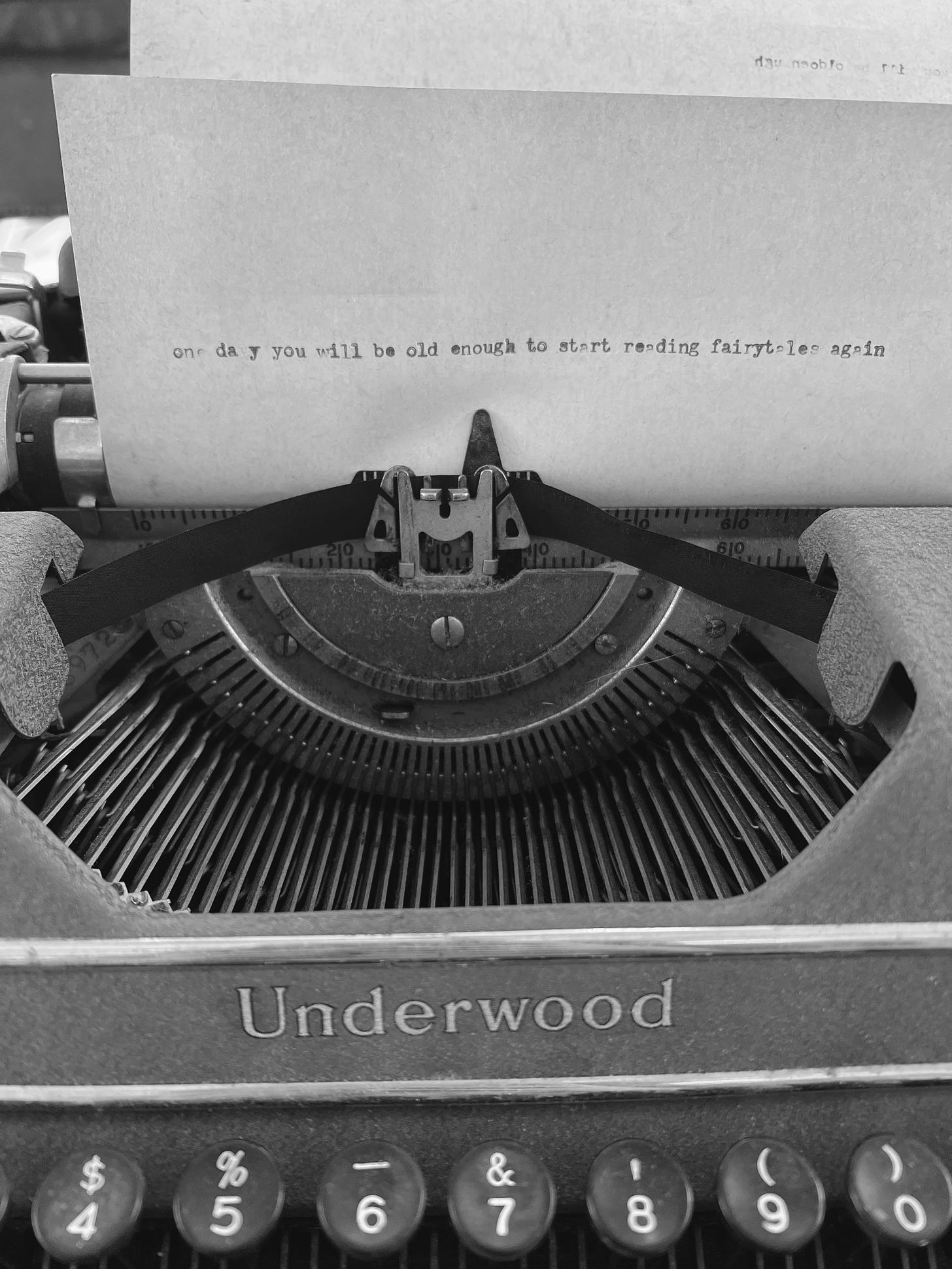Why Fairytales Can Help You Understand Yourself More Than a 5 Billion Hour Morning Routine
A closer look behind these powerful stories
Once upon a time, a girl went down a psychology rabbit hole to justify her excessive reading habits.
I devour any fairytale I can get my hands on, because reading can cure us of our rigid sentiments, and because art and love are the closest things we have to magic.
When I climb inside of a character’s perspective, it expands my capacity for empathy. The narrowing walls of my own biased lens crumble. Reading is a continual shattering of the known. I grieve these characters losses, draw from their strength, and fall in love with a thousand hearts.
A folktale is defined as, “a traditional story that doesn’t have an author but belongs to everyone equally.”
That is how it feels. We have all sat in the great hall of Hogwarts, dwelled by a hearth in the shire, and ridden dragons over Westeros. These stories, these characters—they become part of us, and the tale plays out in our own lives long after we read the last word.
When I started researching why these stories are so impactful, I naturally landed on Grimm’s Fairytales. It’s basically the bible of folklore (or at least the most widely known one).
You can imagine my surprise reading the original version of the stories I grew up with—Cinderella’s wicked sisters slice off parts of their feet to fit into her glass slippers, and the Beast tries to starve himself to death when Beauty doesn’t return.
When I read these stories, it makes sense for that time period. Divorce was not an option, so wicked step-parents were a common occurrence. Not to mention the absence of modern medicine lead to loss of limbs or an untimely death, which shows up in these stories a lot.
The tales of our own time are commonly dystopic. Maybe we are trying to cope with and process this larger reality that the odds may not ever be in our favor with how rapidly technology is evolving. Who knows?
Carl Jung believed fairytales were one of the purest windows into the collective unconscious.
My theory is that in suspending our belief, the skeptic in us slumbers. We can safely swim in the deep waters of our psyche without drowning. At least in writing my own book, I was baffled by how many hidden aspects of my psyche bled into the story.
The heroes journey happens within each of us everyday. The villain tries to control us, the sage advises the hero in how rise to the occasion, and the fool reminds us that laughter can be the wisest act.
The word Fairy comes from the Latin word Fatā which means, “Goddess of Fate.” I wonder if these stories prepare us, for how to build our own relationship to Fate—change it if we wish, or surrender to it when life asks that of us.
One thing I know: fairytales are an invitation. They won’t preach at us. The truth is woven in these tales for those who wish to find it.
“One day you will be old enough to start reading fairytales again.” – CS Lewis
(reference—Grimm’s Complete Fairytales)







Oh, I love and wanted to quote much of what you shared here.
@Erica Perry You’ll appreciate this